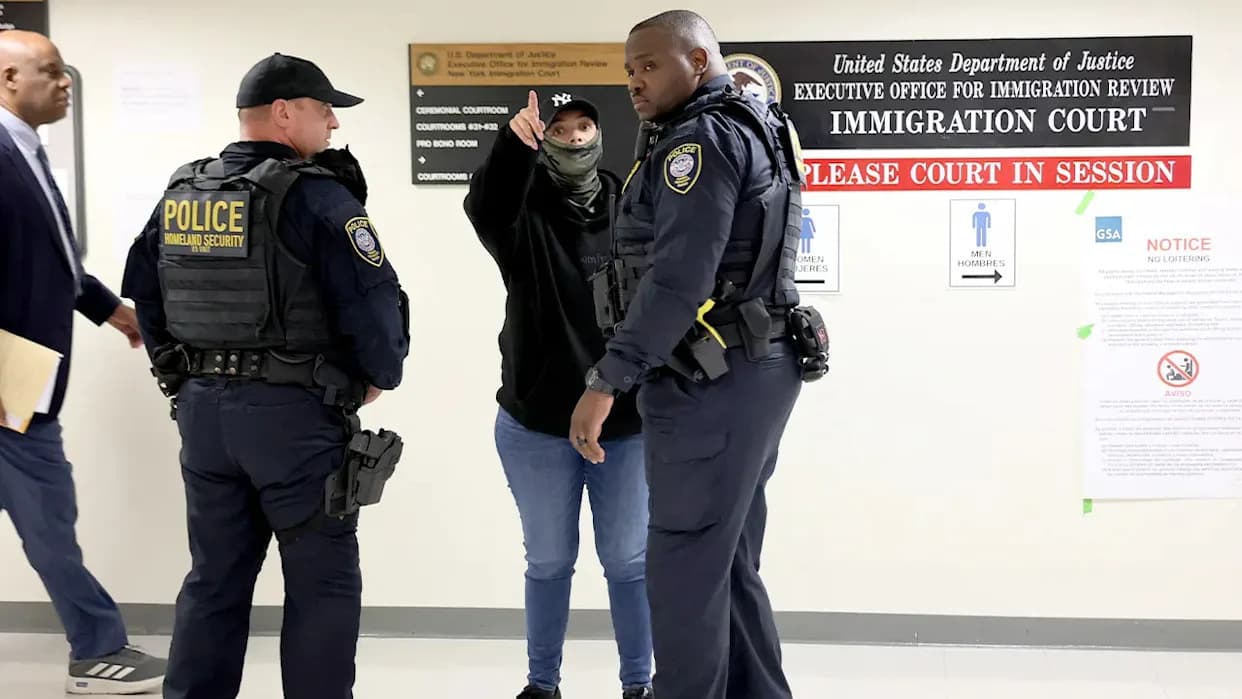The Supreme Court will review "metering," a border practice that limited asylum requests by preventing migrants from setting foot on U.S. soil until processing capacity existed. Lower courts found the practice violated constitutional and statutory protections; the Justice Department sought review despite metering's formal rescission in 2021. The policy began during large Haitian crossings, expanded under the Trump administration and was curtailed during the COVID-19 pandemic. Arguments are expected in late winter or early spring.
Supreme Court Agrees to Review 'Metering' Policy That Limited Asylum at U.S.-Mexico Border

WASHINGTON — The Supreme Court on Monday agreed to consider a practice known as metering, under which U.S. border authorities limited the number of people who could request asylum at crossings by preventing migrants from setting foot on American soil until space was available to process their claims.
The justices will hear an appeal by the Trump administration of lower-court rulings that found metering unlawful. Those rulings held that the practice violated migrants' constitutional rights and a federal statute that requires officials to screen anyone who appears seeking asylum.
Background and legal posture
Officials first used metering during the Obama administration during large Haitian crossings at the San Diego–Tijuana entry and the policy expanded across the southern border during the Trump administration. The practice declined in 2020 as the COVID-19 pandemic led to much stricter limits on asylum seekers, and the Biden administration formally rescinded metering in 2021.
Despite those policy changes, the Justice Department asked the Supreme Court to take the case, arguing that the lower-court decisions removed "a tool that administrations of both parties have deemed critical for controlling the processing of inadmissible aliens during border surges."
In 2021, U.S. District Judge Cynthia Bashant ruled that metering violated statutory and constitutional protections. A three-judge panel of the 9th U.S. Circuit Court of Appeals upheld that decision in a 2-1 ruling, and 12 of the court's 29 active judges later voted to rehear the case en banc — a procedural development that may have helped secure Supreme Court review.
What’s at stake
The high court’s decision could determine whether U.S. border officials may continue to restrict access to asylum at official crossings during periods of high arrivals. Under U.S. law, people on American soil may apply for asylum regardless of how they arrived; to qualify, applicants must show a well-founded fear of persecution in their home country based on race, religion, nationality, membership in a particular social group, or political opinion.
When asylum is granted, recipients cannot be deported, may work legally, can sponsor immediate family members, apply for lawful permanent residence and eventually seek U.S. citizenship — making the stakes high for both migrants and the federal immigration system.
The case is expected to be argued in late winter or early spring.
Help us improve.




























